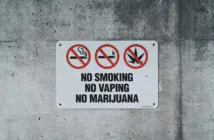The introduction of the Health and Safety at Work Act 2015 (HSWA) is provoking a range of reactions – from the ridiculous to the sublime, and mostly somewhere in between – Lorraine Hercus and Hamish Kynaston note.
One example is the approach that some workplaces are taking to after-work drinks, or to the availability of alcohol more generally in the workplace or at work-related events.
Some workplaces have not even thought about it (which we don’t recommend), some are banning it altogether, and others are a taking more of a middle-ground approach.
The HSWA and regulations do not specifically cover alcohol, and there are no WorkSafe guidelines.
Nevertheless the consumption of alcohol in work situations plainly represents a risk, which PCBUs are responsible for managing.
There is also the potential for serious harm, for example if workers or others become intoxicated or drive under the influence.
Even though a PCBU is generally not responsible for a worker once he or she has left work to travel home, the PCBU could be held liable if the worker is at risk because of alcohol consumed in the workplace, for example at after-work drinks, or at work, for example at a client function.
This will of course depend in the usual way on all the circumstances, including the closeness of the connection to work, the steps taken by the PCBU and individual responsibility.
Further, and rather than focusing on whether the precise wording of the HSWA applies and when, it is more useful for PCBUs to focus on the steps they should take when providing alcohol (if at all) at work, workplaces or work-related events.
Case law?
The HSWA has not been tested in this way, but we can look to other cases where organisations have faced court action.
A financial services company was fined $10,000 in the Magistrates Court of Western Australia in 2015 for unlawfully supplying alcohol.
The company organised a boat trip where alcohol was provided without a permit that would have required someone present to ensure alcohol was provided responsibly. One of the attendees drowned during the trip.
Closer to home, a heavily intoxicated man who drowned in a Wellington storm-water drain had been drinking for some time at licensed premises shortly before his death.
The man fell at the premises and cut his lip and nose. He left the premises to go to his car, dropped his keys in the drain and drowned trying to retrieve them.
Following the police investigation, the premises’ licences were suspended for 24 and 48 hours respectively. The premises are now required to assess patrons more proactively for intoxication.
Arguably the health and safety regulator could have taken action in both cases. In practice, it is probably only when there has been a serious accident that the police or WorkSafe will track back to the PCBU over alcohol-related harm.
Police typically ask drink drivers where they have been drinking, so there is the potential in this instance to follow the same procedure.
What should a PCBU do practically?
Some PCBUs take the approach of prohibiting the consumption of alcohol altogether at work or in the workplace. This is a perfectly valid approach, especially in safety sensitive workplaces.
Where this approach is taken in other workplaces, it is often much about culture or consistency – for example, the PCBU’s head office makes the same commitment as its industrial sites.
Prohibition is not the answer necessarily for every workplace.
If yours is a workplace where alcohol is provided or consumed in work situations or at events, we recommend a common-sense approach.
You should consider the following:
- Where is the function being held – at work or an external venue? How much control do you have over the venue?
- Are workers aware of the expected standard of behaviour, both generally and around drink driving? Is there a policy in place or are reminders sometimes sent out?
- Is someone present to supervise, monitor alcohol supply and consumption, and intervene or assist where necessary? Do managers or other workers understand that they can and should intervene and assist if they have concerns?
- Is there sufficient food and non-alcoholic drinks available throughout?
- If minors are present, what steps are in place to ensure they don’t have access to alcohol?
- Is the alcohol self-serve, and if so what controls are in place to monitor this?
- At what time will alcohol cease to be available? A cut-off time is recommended. Is the supply unlimited until then?
- What steps do you have in place to help ensure workers and other guests get home safely? While the PCBU need not pay necessarily, there should be ready access to safe transport options. If someone is intoxicated, there is a greater responsibility to ensure that he or she makes it into a taxi or is otherwise looked after.
Ultimately, the PCBU should aim always to be a responsible host. That will keep everyone safe. Cheers!
Lorraine Hercus is a Senior Solicitor and Hamish Kynaston a Partner at Buddle Findlay, one of New Zealand’s leading commercial law and public law firms with offices in Auckland, Wellington and Christchurch



